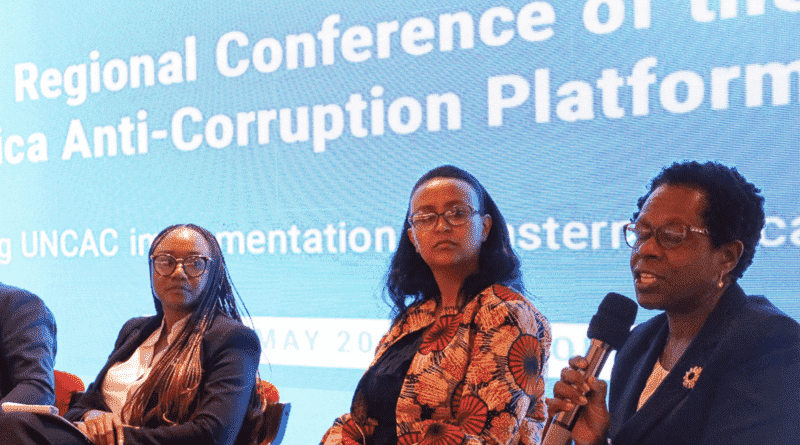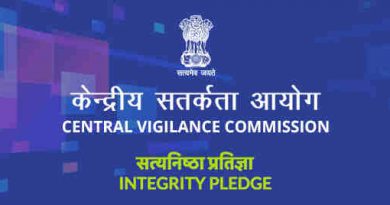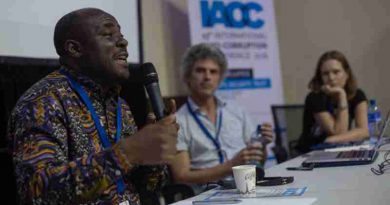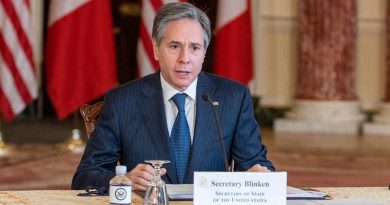UNODC and UN Global Compact Drive Private Sector Action Against Corruption
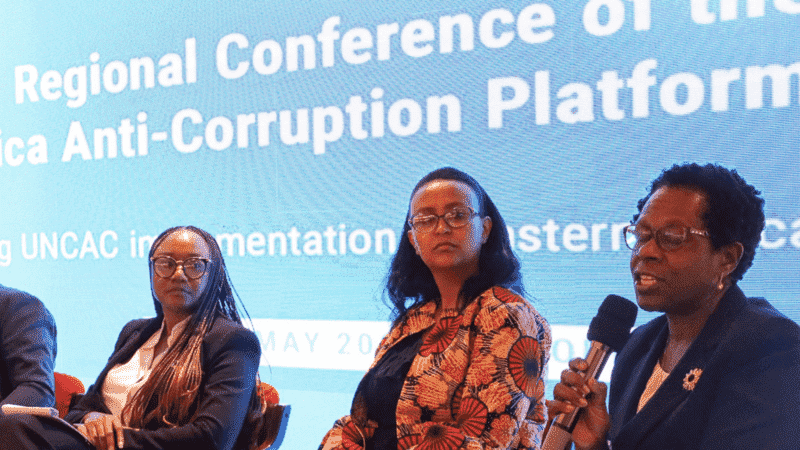
UNODC and UN Global Compact Drive Private Sector Action Against Corruption
Corruption continues to distort markets, undermine competition, increase business costs, reduce product and service quality, and weaken the rule of law, ultimately hindering sustainable development.
In the capital city of Kenya, Nairobi, the private sector accounts for about 75 percent of the country’s gross domestic product (GDP). Mirroring other countries in the Eastern Africa region and Africa at large, Kenya’s private sector employs around 90 percent of the working-age population, highlighting its crucial role in providing jobs and livelihoods for the continent.
Over four days (from 20 to 23 May 2024), more than 100 policymakers and public and private sector representatives convened in Nairobi for the regional conference of the Eastern Africa Anti-Corruption Platform to fast-track the implementation of the United Nations Convention against Corruption (UNCAC).
The goal was to discuss a collective way forward for anti-corruption efforts in the region. For the first time, a regional UNCAC platform included significant participation from private sector actors. Stakeholders across the Eastern Africa region have recently emphasized business integrity as an area of interest, making it one of the four priority areas to be addressed by the platform.
Indeed, this push to prioritize business integrity comes with good reason. According to the African Union, corruption costs Africa a staggering USD 148 billion annually, severely hindering poverty alleviation efforts. Despite the promising trajectory on various economic indicators, challenges relating to corruption persist.
Corruption continues to distort markets, undermine competition, increase business costs, reduce product and service quality, and weaken the rule of law, ultimately hindering sustainable development. However, there has recently been a marked increase in interest in business integrity measures.
In the past few years, according to the United Nations Office on Drugs and Crime (UNODC), the private sector has become a key driver of change, advancing business integrity reforms that have reshaped the global anti-corruption landscape.
While anti-corruption efforts were once primarily government-led, a collaborative approach with the private sector and other stakeholders has become crucial for developing effective anti-corruption policies. Engaging the private sector in this fight remains essential for promoting economic development, ensuring fair and safe markets, and enhancing the overall well-being of societies.
At the regional conference in Nairobi, UNODC and the UN Global Compact facilitated vibrant discussions between executives from various sectors in the Eastern Africa region on private sector collective action against corruption.
Conversations on the topic were coordinated through a working group and a panel session composed of public and private sector representatives from Burundi, Ethiopia, Kenya, Rwanda, South Sudan, Tanzania, the Democratic Republic of the Congo and Uganda. The profiles represented included senior officials from anti-corruption bureaus, heads of UN Global Compact Country Networks, senior officials from chambers of commerce as well as founders of companies and small and medium-sized enterprises.
During the event, participants discussed measures for preventing and reporting corruption in the private sector and developed practical recommendations to encourage collective action, accompanied with indicators to measure progress.
Deliberations laid emphasis on incentives for business integrity, a topic which gained significant attention following the tenth Conference of the States Parties (CoSP) to UNCAC in December 2023.
The working group largely drew inspiration from resolution 10/12, entitled “Providing incentives for the private sector to adopt integrity measures to prevent and combat corruption” adopted at CoSP10 as well as the Call-to-Action from business to Government on the 20th anniversary of the UNCAC.
In the same light, the 2024 publication “A Resource Guide on State Measures for Strengthening Business Integrity” developed by UNODC, the UN Global Compact and the Organisation for Economic Cooperation and Development (OECD) was presented to working group members, guiding the conversation on the balance between sanctions and incentives for States in enhancing business integrity.
During the plenary session of the conference, UNODC and the UN Global Compact presented an outcome document with the key work items endorsed including enhancement of collective action, implementation of incentives for business integrity and strengthening of legal frameworks. These outcomes create an important impetus for continued work on business integrity in the region for the next few years.
Courtesy: UNODC
💛 Support Independent Journalism
If you find RMN News useful, please consider supporting us.

